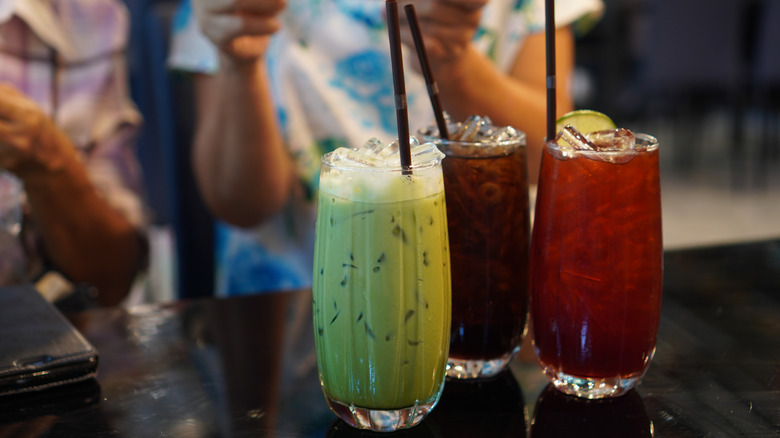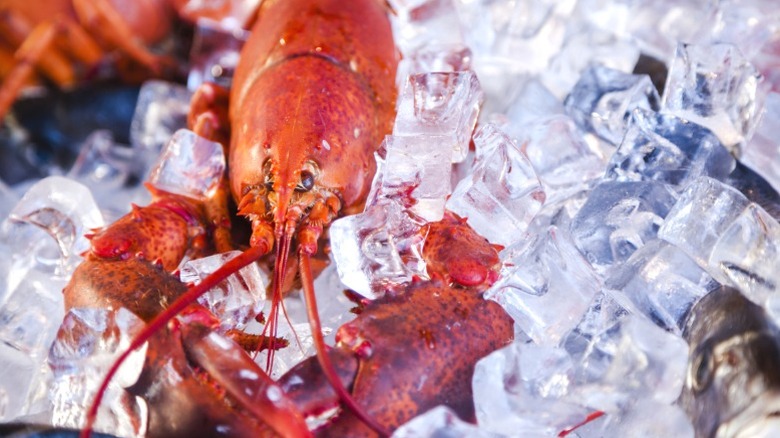Why You Should Always Be Wary Of Ice When Traveling
As anyone who's lived in New York will tell you, not all tap water is created equal. (Best bagels in the world, baby!) Some places have tap water that goes down smooth and easy, without causing your stomach any distress; other places have what is known as "hard" water, which has more dissolved minerals and, accordingly, tastes different, if not necessarily worse. On top of that, those who travel frequently will often be careful not to drink the local tap water, as their stomachs won't be used to the particular melange of bacteria floating around in there — which can result in "traveler's diarrhea." But if you're taking steps to avoid food poisoning while traveling, you should be careful with the local ice cubes, as well.
Think about it: Where does your ice come from at home? Either your fridge makes it, or you buy it in a big bag from the store, which you have to drop on the ground to shatter into pieces. In both cases, it's almost certainly made from your local tap water. The same goes for wherever you're traveling. It's not like Mexico or France or China will import ice cubes from America for the sake of your sensitive digestive tract, right? That ice, when it melts down in your drink, then becomes tap water, which can then become quite unpleasant indeed if you're not properly prepared.
Be careful of ice — no matter how it's used
Now, we're not advocating for you to be completely paranoid or anything. You may very well have gone abroad and had plenty of drinks on the rocks without it causing you a bit of harm. But we're just letting you know that there's a possibility things could go awry, especially if someone's a little too lax when it comes to sanitation.
There's a reason why bartenders are supposed to use tongs when putting ice in your drink, and why a lack of tongs can be a major red flag: Bacteria and the illnesses they carry can be easily transmitted through ice cubes. They may come from an unwashed hand plunking some ice cubes in your negroni; they may come from an unclean ice machine, as with a case of norovirus in a luxury hotel; they may even come into your food if it's placed on ice.
Again, we're not trying to make you paranoid. We trust you to use your own discretion. But if you have even a little bit of doubt, you might want to take your drink neat and forgo the raw clam bar when you go abroad.

